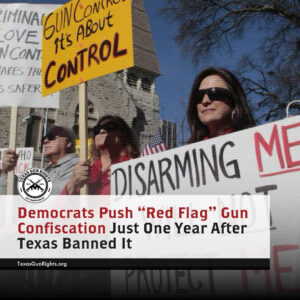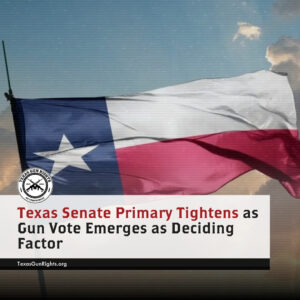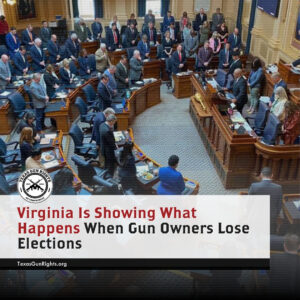In a lawsuit brought by the Firearms Policy Coalition (FPC), the federal government has doubled down on a 1968-era restriction that makes it illegal for law-abiding Americans to purchase a handgun from a licensed dealer outside their home state, unless it’s transferred to an in-state dealer first.
This isn’t a small inconvenience. It’s a federal barrier that increases the cost, time, and difficulty for Americans to acquire a constitutionally protected product.
While the administration argues that the law “only modestly burdens” gun rights and serves a legitimate government interest, the FPC rightly points out that such reasoning flies in the face of the Supreme Court’s Bruen decision, which mandates that any gun regulation must be rooted in America’s historical tradition of firearm regulation—not modern notions of “common sense” or “balancing interests.”
A Ban Rooted in Bureaucracy, Not Liberty
The FPC lawsuit challenges this as unconstitutional. The plaintiffs include Elite Precision Customs, a licensed gun dealer in Texas, and firearms instructors Tim Herron of New Mexico and Freddie Blish of Arizona.
The administration’s response? That the burden is “modest” and historically justified—though even they concede the law “unquestionably burdens” Second Amendment rights.
A Rare Misstep from an Otherwise Pro-Gun Administration
This defense is particularly jarring given the Trump administration’s evolution on guns.
During his first term, President Trump unilaterally banned bump stocks via executive order—a move that expanded the ATF’s regulatory reach without Congressional approval and set a dangerous precedent for executive overreach.
He also flirted with red flag laws, stating “take the guns first, go through due process second” in a now-infamous moment of political miscalculation.
But after “losing” re-election in 2020 and returning to power in 2024, Trump began course correcting in a major way.
Perhaps most notably, Trump cleaned house at the ATF, ousting the agency’s left-leaning legal counsel, Pamela Hicks, and replacing her with Robert Leder, a legal mind with a deep pro-Second Amendment record.
The result has been the ATF pulling back from aggressive regulatory actions that gun owners decried during the Biden years.
Even more significantly, major pro-gun lawsuit settlements with the DOJ have occurred under Trump’s watch—including Texas Gun Rights’ landmark settlement over forced reset triggers (FRTs). That case marked a massive win for gun owners and a stinging defeat for federal overreach.
Hypocrisy at the Highest Level
Adding salt to the wound is the fact that President Trump himself may have violated this very law.
In 2023, a spokesman claimed Trump bought a Glock 19 during a campaign stop in South Carolina.
This irony isn’t just political theater—it’s a reflection of why constitutional rights should never be subject to bureaucratic discretion or political convenience.
A Call for Constant Vigilance
The Bruen decision has reshaped the legal landscape for gun rights, setting a clear test: gun laws must be grounded in the historical tradition of firearm regulation in America. There is no historical analog for barring law-abiding Americans from purchasing firearms in other states.
The Trump administration’s defense of this ban runs contrary to that standard. Gun owners must remain vigilant, even when “our side” is in charge.
That is why groups like the Texas Gun Rights and the National Association for Gun Rights are so vital—they are not beholden to personalities or parties. They exist to defend your rights without compromise.
As always, the Second Amendment is not about hunting or sport. It is the last safeguard against tyranny, foreign or domestic. And the moment we allow “modest burdens” or “common sense regulations” to chip away at it, we set ourselves on a slippery slope toward disarmament.
Gun owners must continue to demand that all laws—federal or state—respect both the letter and the spirit of the Constitution. And that includes reminding even the most pro-gun presidents that “shall not be infringed” means exactly what it says.







